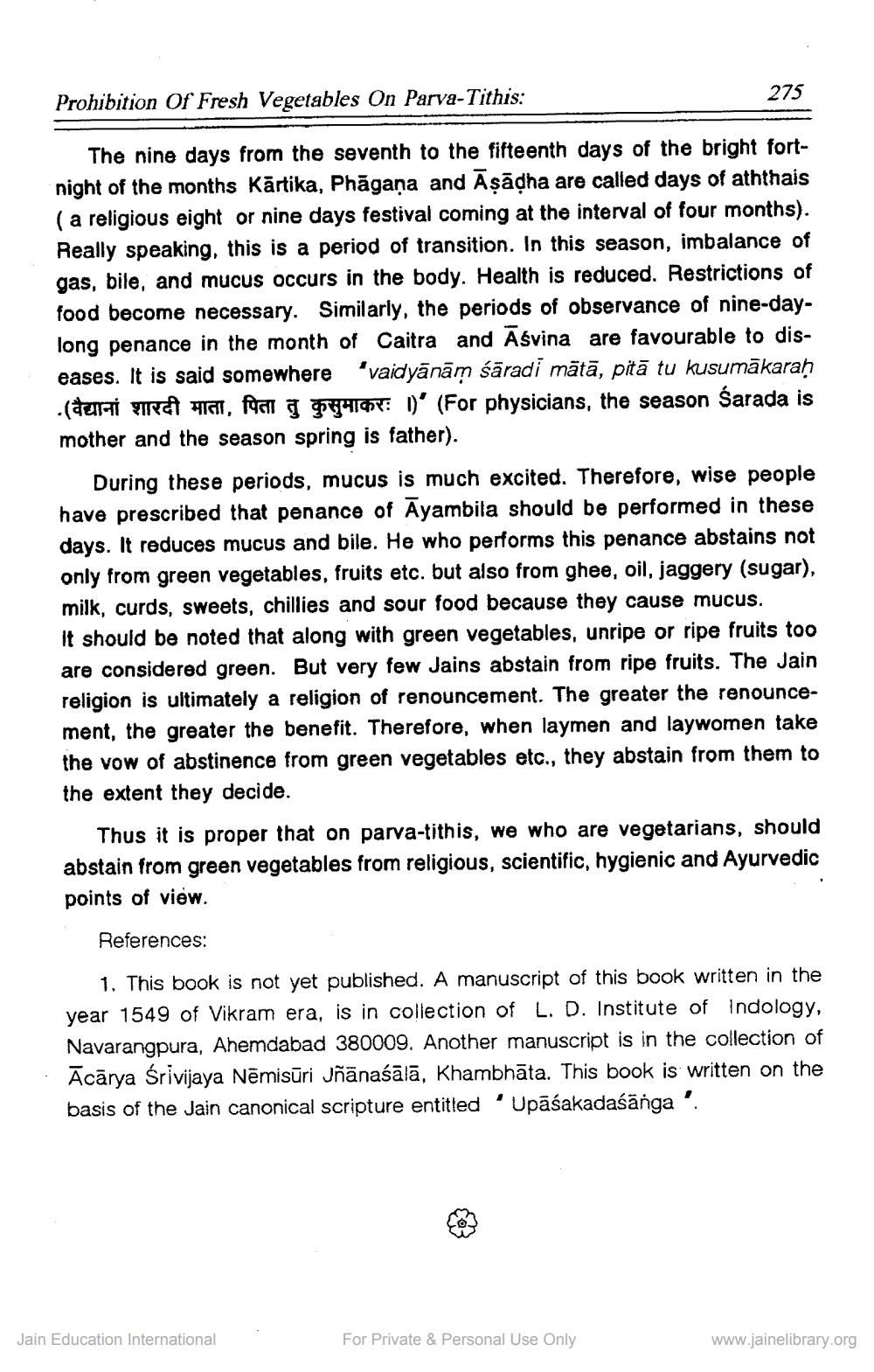________________
Prohibition Of Fresh Vegetables On Parva-Tithis:
The nine days from the seventh to the fifteenth days of the bright fortnight of the months Kārtika, Phāgaṇa and Aṣāḍha are called days of aththais (a religious eight or nine days festival coming at the interval of four months). Really speaking, this is a period of transition. In this season, imbalance of gas, bile, and mucus occurs in the body. Health is reduced. Restrictions of food become necessary. Similarly, the periods of observance of nine-daylong penance in the month of Caitra and Aśvina are favourable to diseases. It is said somewhere "vaidyānām saradi mātā, pitā tu kusumākaraḥ . ( वैद्यानां शारदी माता, पिता तु कुसुमाकरः 1)' (For physicians, the season śarada is mother and the season spring is father).
275
During these periods, mucus is much excited. Therefore, wise people have prescribed that penance of Ayambila should be performed in these days. It reduces mucus and bile. He who performs this penance abstains not only from green vegetables, fruits etc. but also from ghee, oil, jaggery (sugar), milk, curds, sweets, chillies and sour food because they cause mucus. It should be noted that along with green vegetables, unripe or ripe fruits too are considered green. But very few Jains abstain from ripe fruits. The Jain religion is ultimately a religion of renouncement. The greater the renouncement, the greater the benefit. Therefore, when laymen and laywomen take the vow of abstinence from green vegetables etc., they abstain from them to the extent they decide.
Thus it is proper that on parva-tithis, we who are vegetarians, should abstain from green vegetables from religious, scientific, hygienic and Ayurvedic points of view.
References:
1. This book is not yet published. A manuscript of this book written in the year 1549 of Vikram era, is in collection of L. D. Institute of Indology, Navarangpura, Ahemdabad 380009. Another manuscript is in the collection of Acarya Śrivijaya Nēmisūri Jñānaśālā, Khambhāta. This book is written on the basis of the Jain canonical scripture entitled Upāśakadaśānga ".
1
Jain Education International
For Private & Personal Use Only
www.jainelibrary.org




